
Security News
Fluent Assertions Faces Backlash After Abandoning Open Source Licensing
Fluent Assertions is facing backlash after dropping the Apache license for a commercial model, leaving users blindsided and questioning contributor rights.
An event-driven TCP networking framework.
Ideas and concepts under the hood are build upon those of Netty, especially the IO and executor model.
APIs are intuitive to use if you are a Netty alcoholic.
pip install py-netty
Start an echo server:
from py_netty import ServerBootstrap
ServerBootstrap().bind(address='0.0.0.0', port=8080).close_future().sync()
Start an echo server (TLS):
from py_netty import ServerBootstrap
ServerBootstrap(certfile='/path/to/cert/file', keyfile='/path/to/cert/file').bind(address='0.0.0.0', port=9443).close_future().sync()
As TCP client:
from py_netty import Bootstrap, ChannelHandlerAdapter
class HttpHandler(ChannelHandlerAdapter):
def channel_read(self, ctx, buffer):
print(buffer.decode('utf-8'))
remote_address, remote_port = 'www.google.com', 80
b = Bootstrap(handler_initializer=HttpHandler)
channel = b.connect(remote_address, remote_port).sync().channel()
request = f'GET / HTTP/1.1\r\nHost: {remote_address}\r\n\r\n'
channel.write(request.encode('utf-8'))
input() # pause
channel.close()
As TCP client (TLS):
from py_netty import Bootstrap, ChannelHandlerAdapter
class HttpHandler(ChannelHandlerAdapter):
def channel_read(self, ctx, buffer):
print(buffer.decode('utf-8'))
remote_address, remote_port = 'www.google.com', 443
b = Bootstrap(handler_initializer=HttpHandler, tls=True, verify=True)
channel = b.connect(remote_address, remote_port).sync().channel()
request = f'GET / HTTP/1.1\r\nHost: {remote_address}\r\n\r\n'
channel.write(request.encode('utf-8'))
input() # pause
channel.close()
TCP port forwarding:
from py_netty import ServerBootstrap, Bootstrap, ChannelHandlerAdapter, EventLoopGroup
class ProxyChannelHandler(ChannelHandlerAdapter):
def __init__(self, remote_host, remote_port, client_eventloop_group):
self._remote_host = remote_host
self._remote_port = remote_port
self._client_eventloop_group = client_eventloop_group
self._client = None
def _client_channel(self, ctx0):
class __ChannelHandler(ChannelHandlerAdapter):
def channel_read(self, ctx, bytebuf):
ctx0.write(bytebuf)
def channel_inactive(self, ctx):
ctx0.close()
if self._client is None:
self._client = Bootstrap(
eventloop_group=self._client_eventloop_group,
handler_initializer=__ChannelHandler
).connect(self._remote_host, self._remote_port).sync().channel()
return self._client
def exception_caught(self, ctx, exception):
ctx.close()
def channel_read(self, ctx, bytebuf):
self._client_channel(ctx).write(bytebuf)
def channel_inactive(self, ctx):
if self._client:
self._client.close()
proxied_server, proxied_port = 'www.google.com', 443
client_eventloop_group = EventLoopGroup(1, 'ClientEventloopGroup')
sb = ServerBootstrap(
parant_group=EventLoopGroup(1, 'Acceptor'),
child_group=EventLoopGroup(1, 'Worker'),
child_handler_initializer=lambda: ProxyChannelHandler(proxied_server, proxied_port, client_eventloop_group)
)
sb.bind(port=8443).close_future().sync()
Create handler with callbacks for interested events:
from py_netty import ChannelHandlerAdapter
class MyChannelHandler(ChannelHandlerAdapter):
def channel_active(self, ctx: 'ChannelHandlerContext') -> None:
# invoked when channel is active (TCP connection ready)
pass
def channel_read(self, ctx: 'ChannelHandlerContext', msg: Union[bytes, socket.socket]) -> None:
# invoked when there is data ready to process
pass
def channel_inactive(self, ctx: 'ChannelHandlerContext') -> None:
# invoked when channel is inactive (TCP connection is broken)
pass
def channel_registered(self, ctx: 'ChannelHandlerContext') -> None:
# invoked when the channel is registered with a eventloop
pass
def channel_unregistered(self, ctx: 'ChannelHandlerContext') -> None:
# invoked when the channel is unregistered from a eventloop
pass
def channel_handshake_complete(self, ctx: 'ChannelHandlerContext') -> None:
# invoked when ssl handshake is complete, this only applies to client side
pass
def channel_writability_changed(self, ctx: 'ChannelHandlerContext') -> None:
# invoked when pending data > high water mark or < low water mark
pass
def exception_caught(self, ctx: 'ChannelHandlerContext', exception: Exception) -> None:
# invoked when there is any exception raised during process
pass
Test is performed using echo client/server mechanism on a 1-Core 2.0GHz Intel(R) Xeon(R) Platinum 8452Y with 4GB memory, Ubuntu 22.04.
(Please see bm_echo_server.py for details.)
3 methods are tested:
3 metrics are collected:

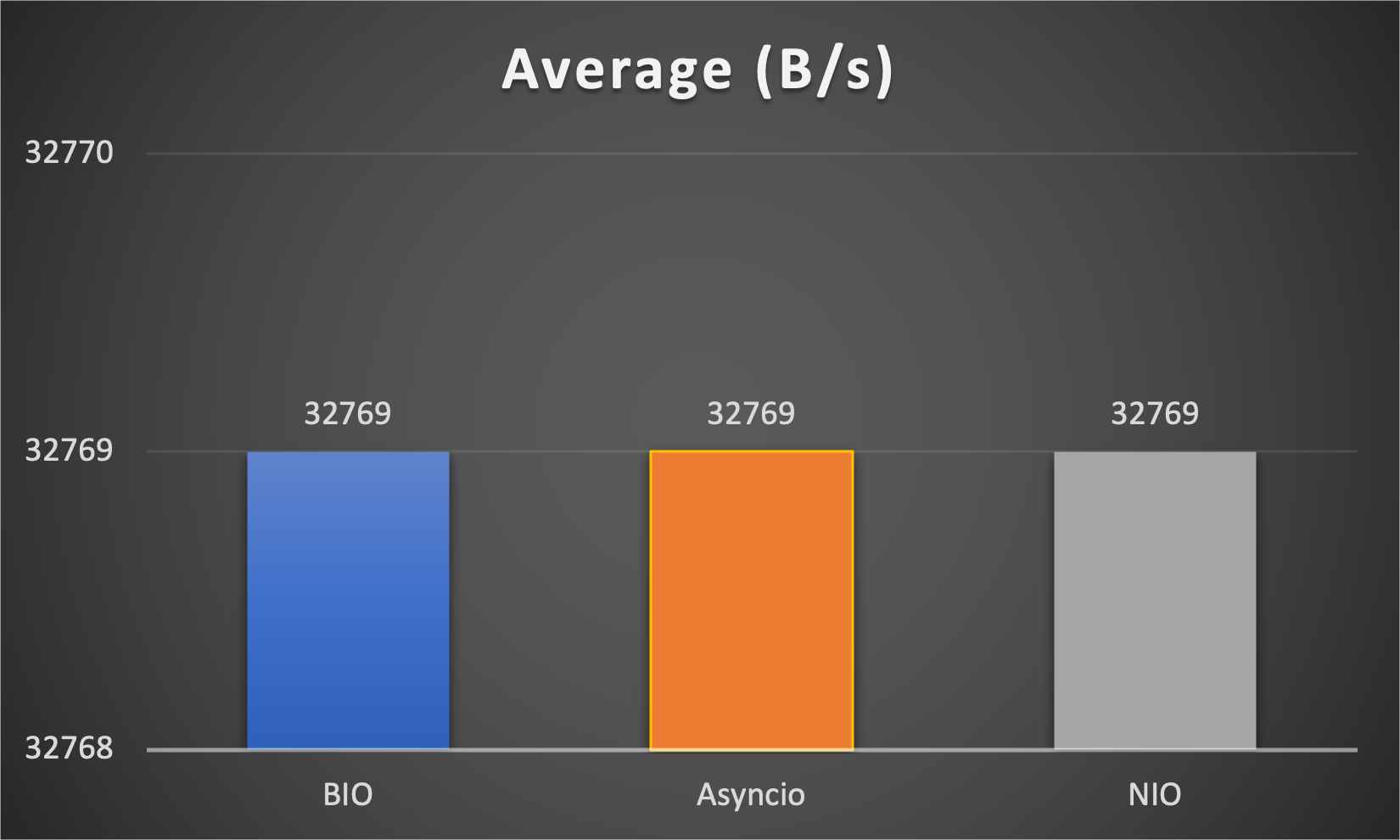
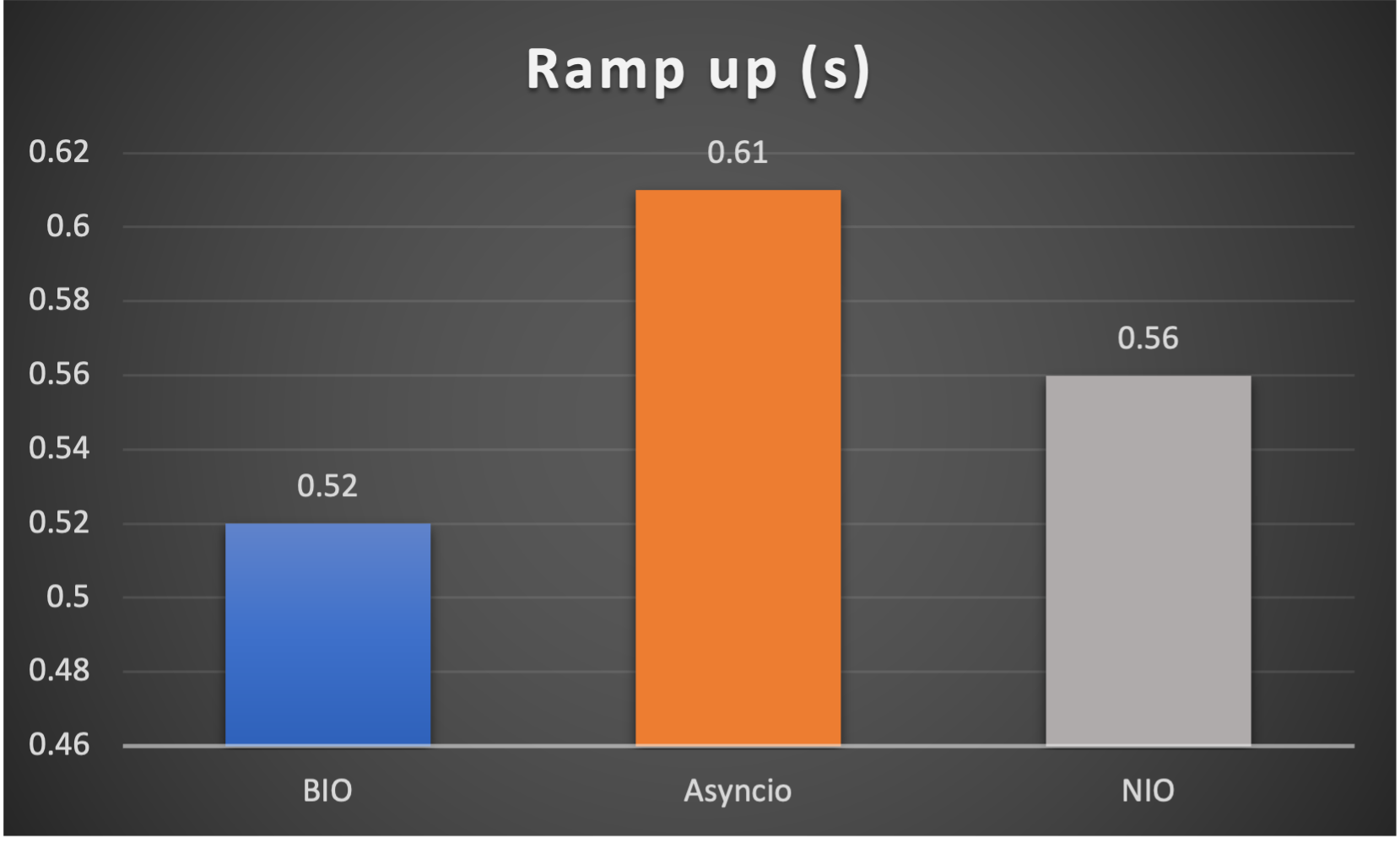
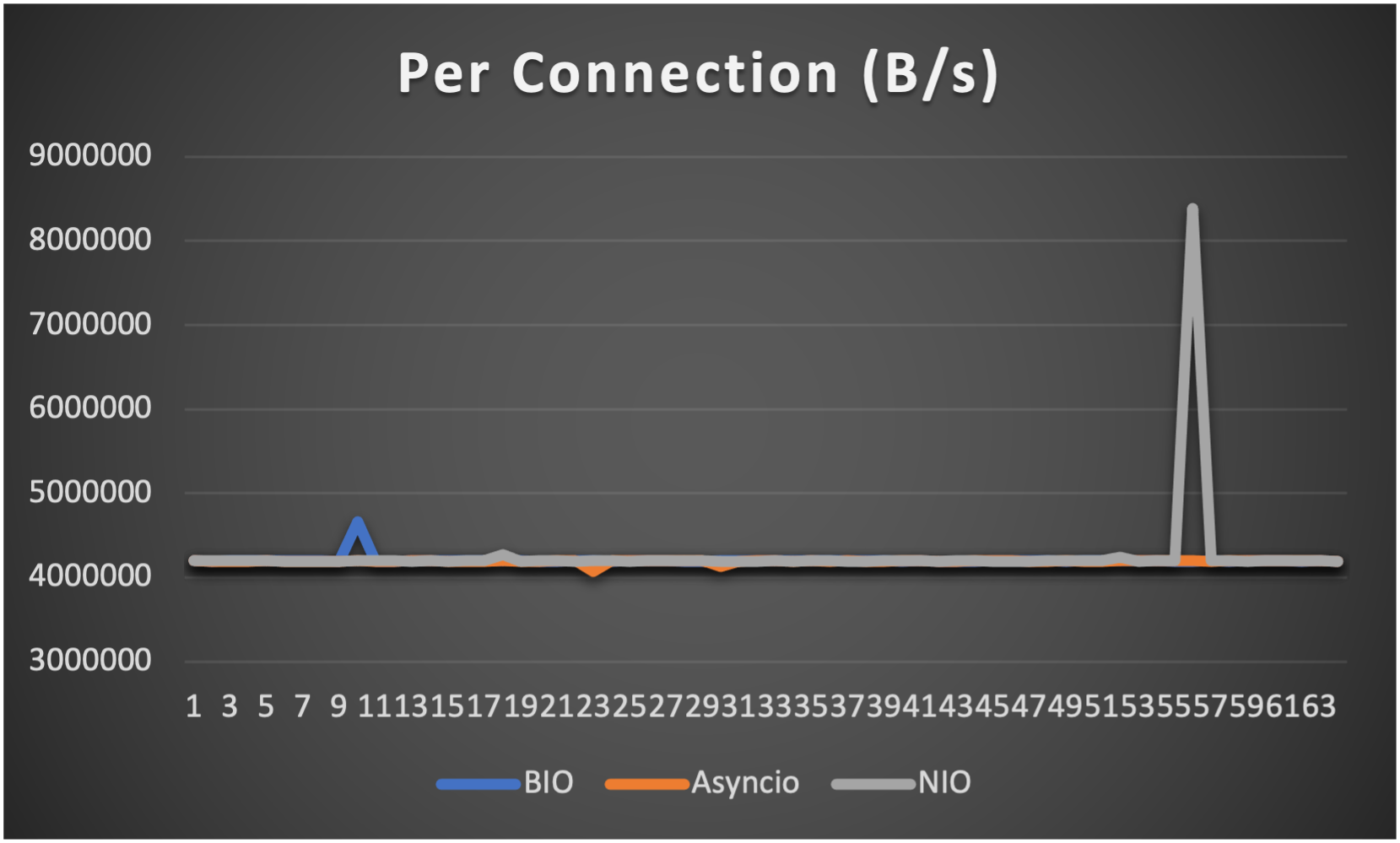
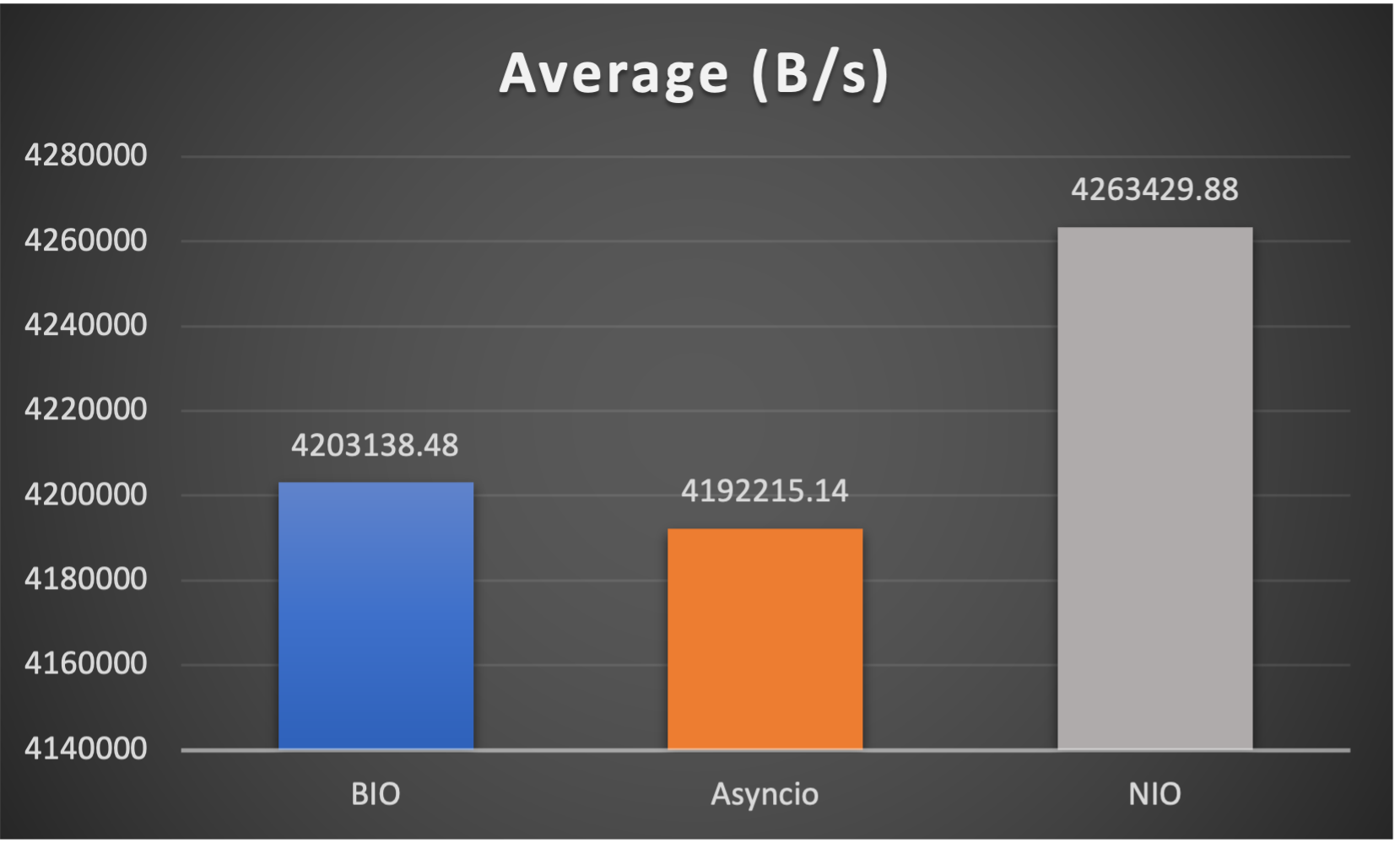
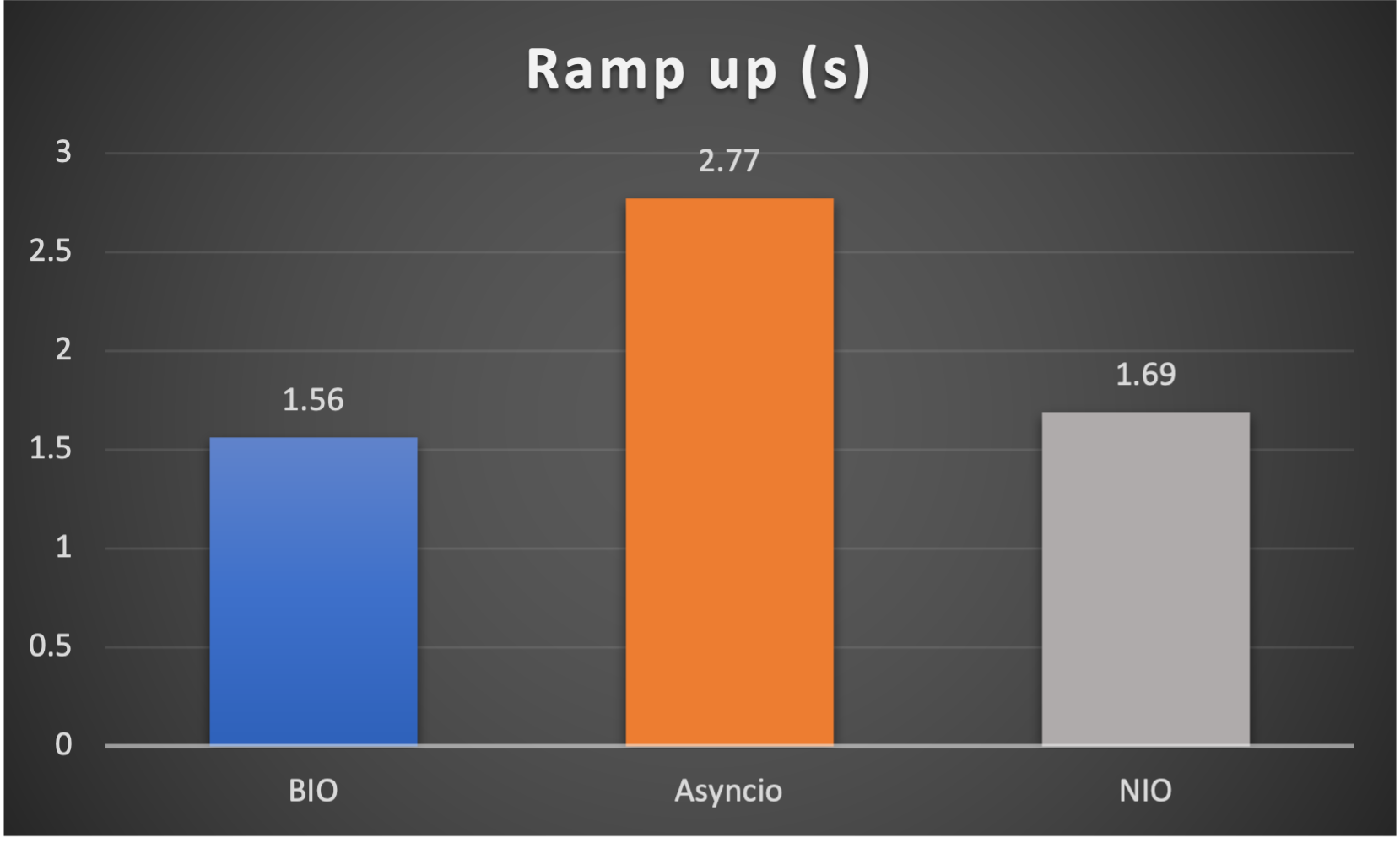
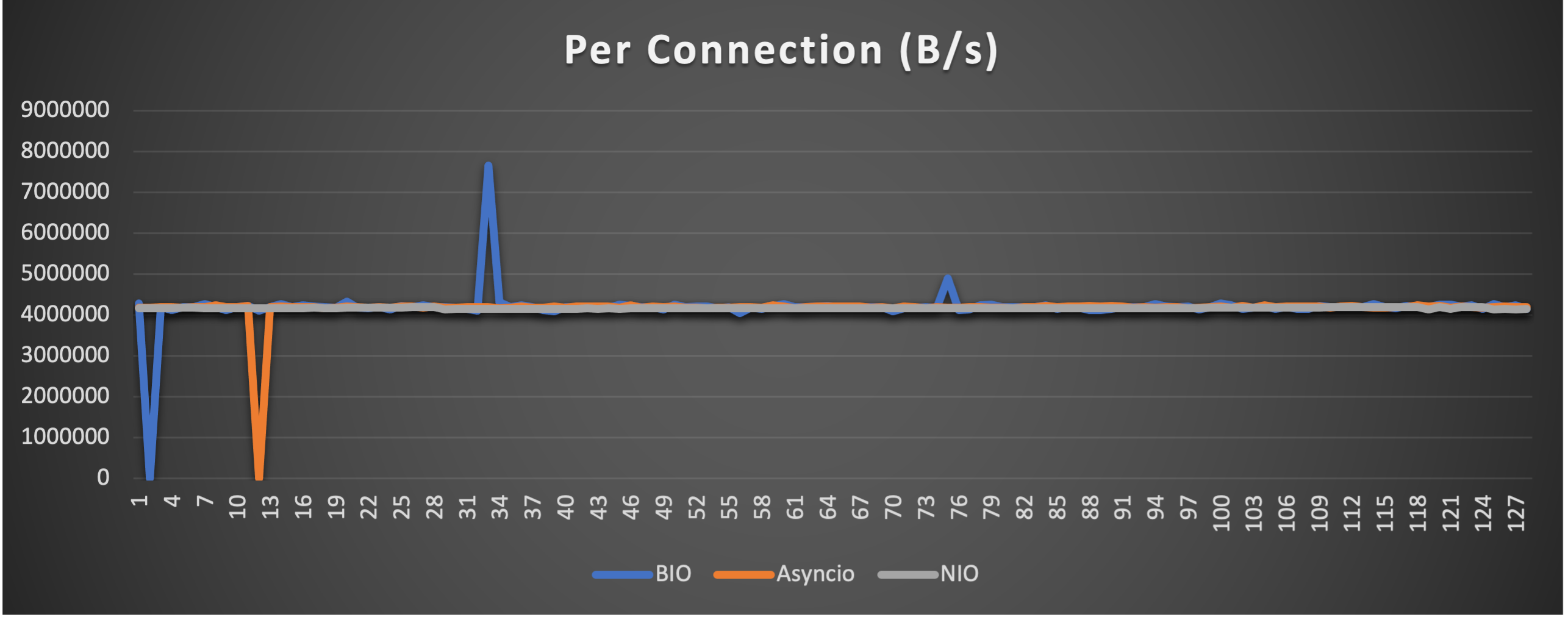
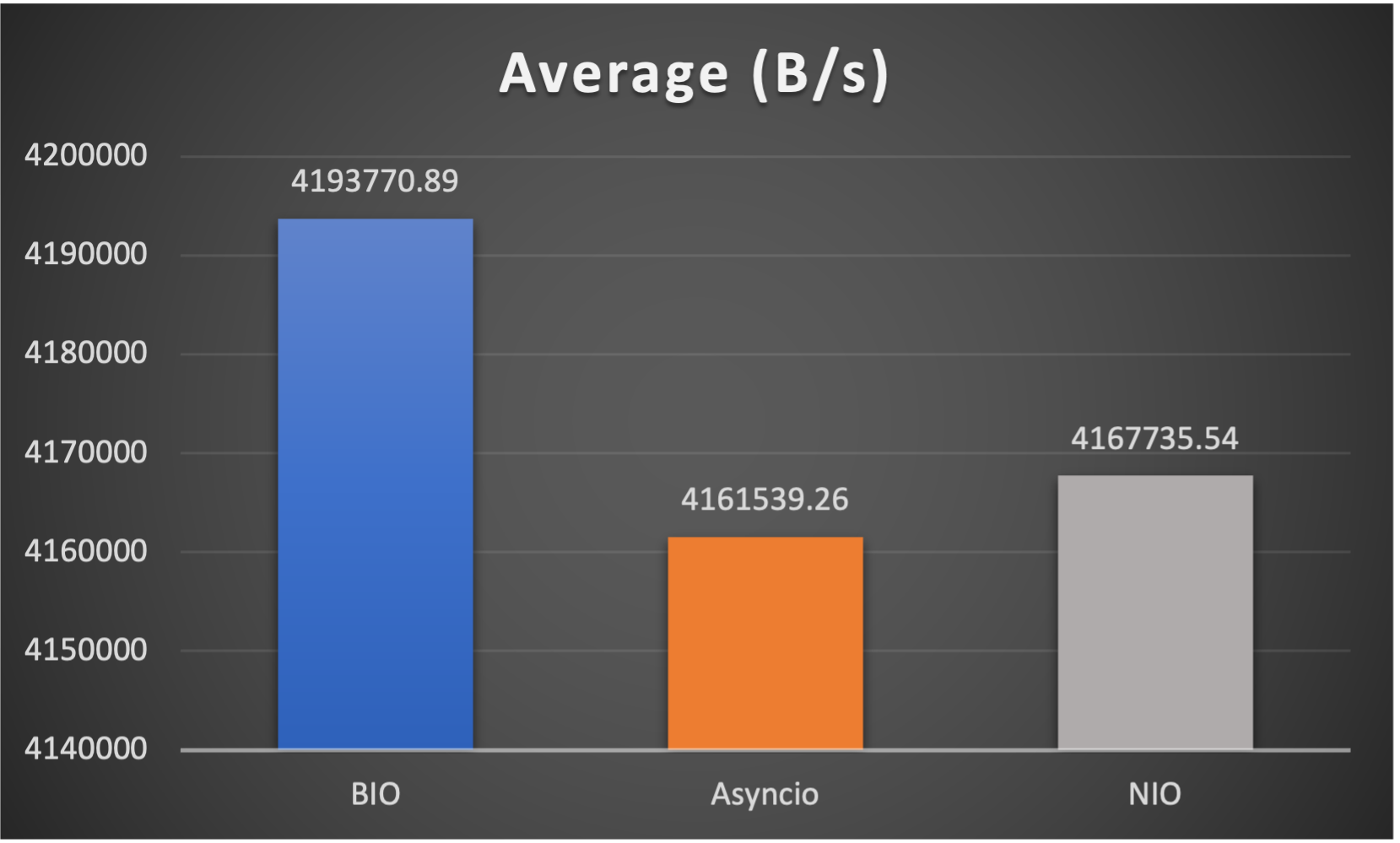
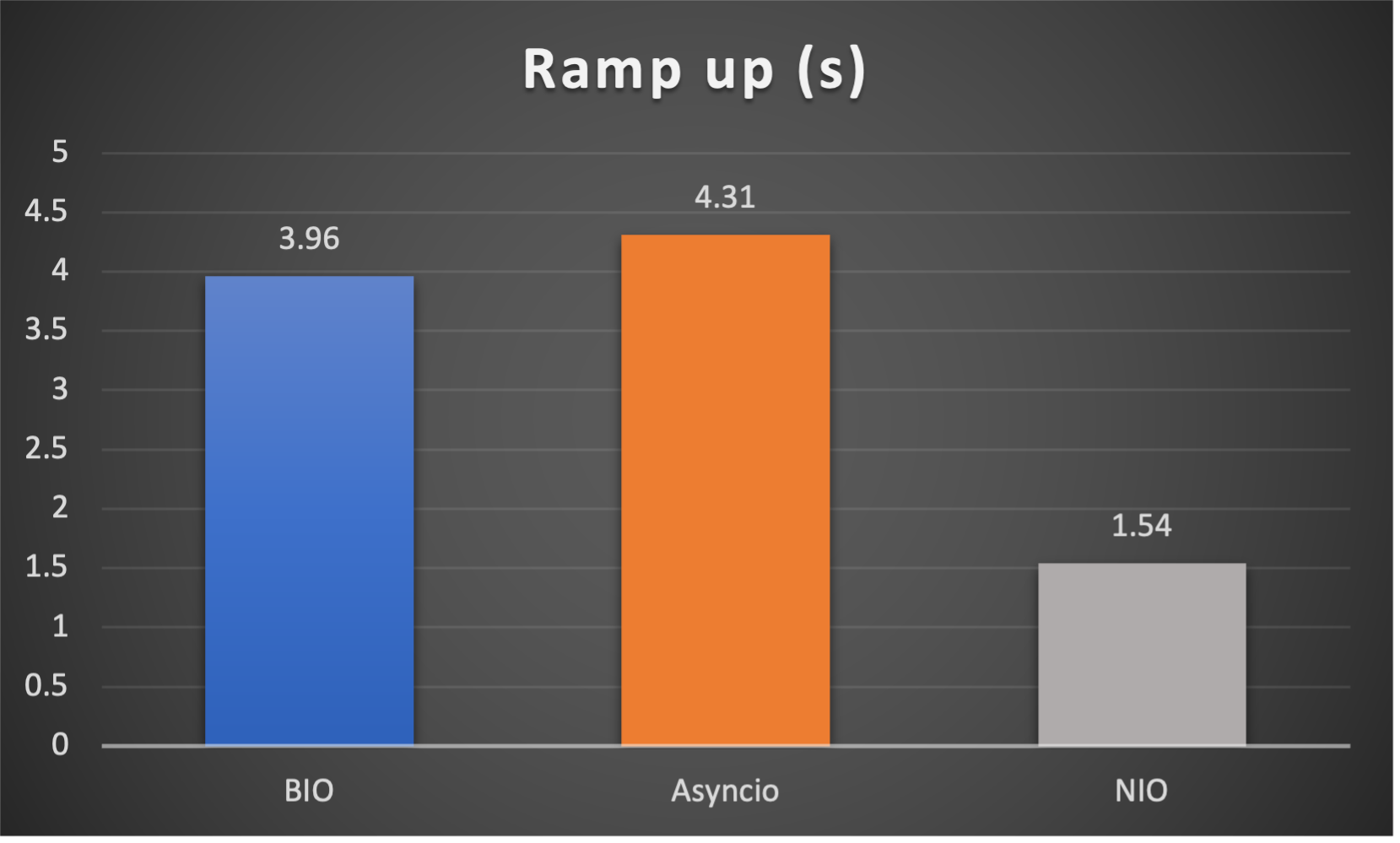
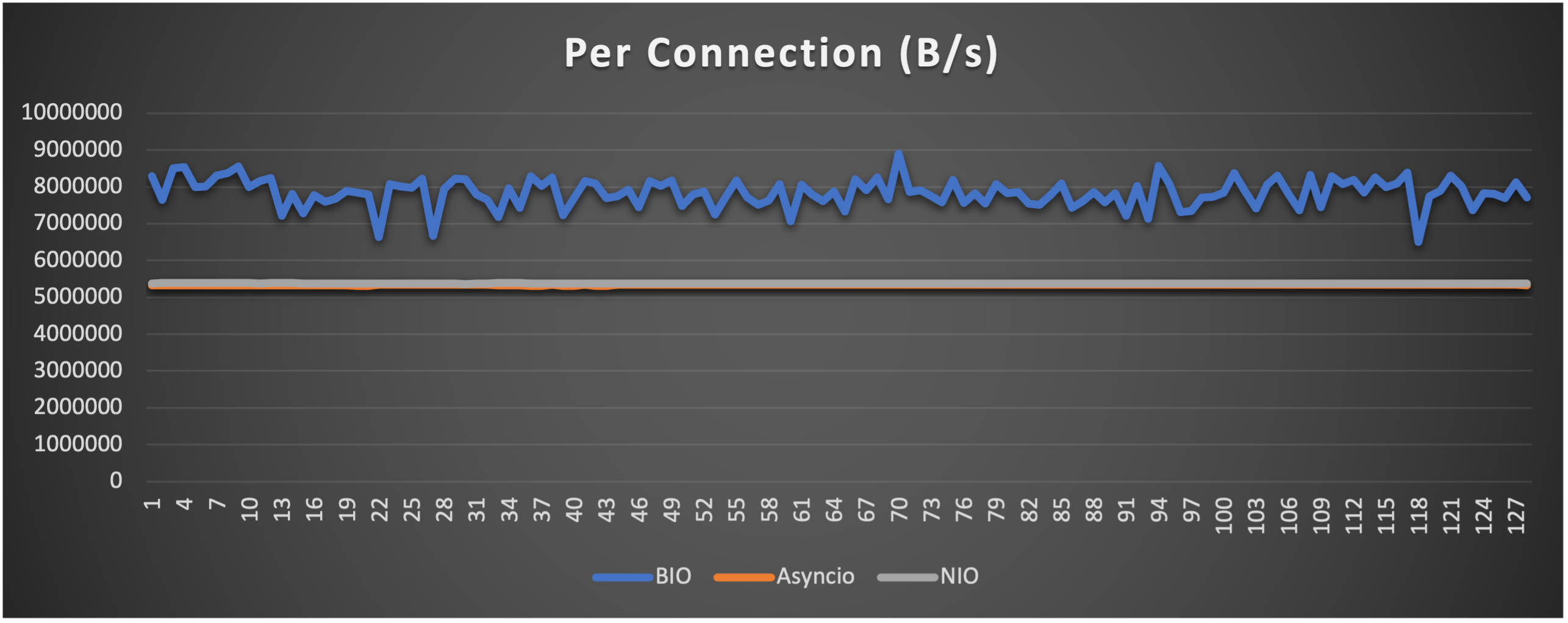
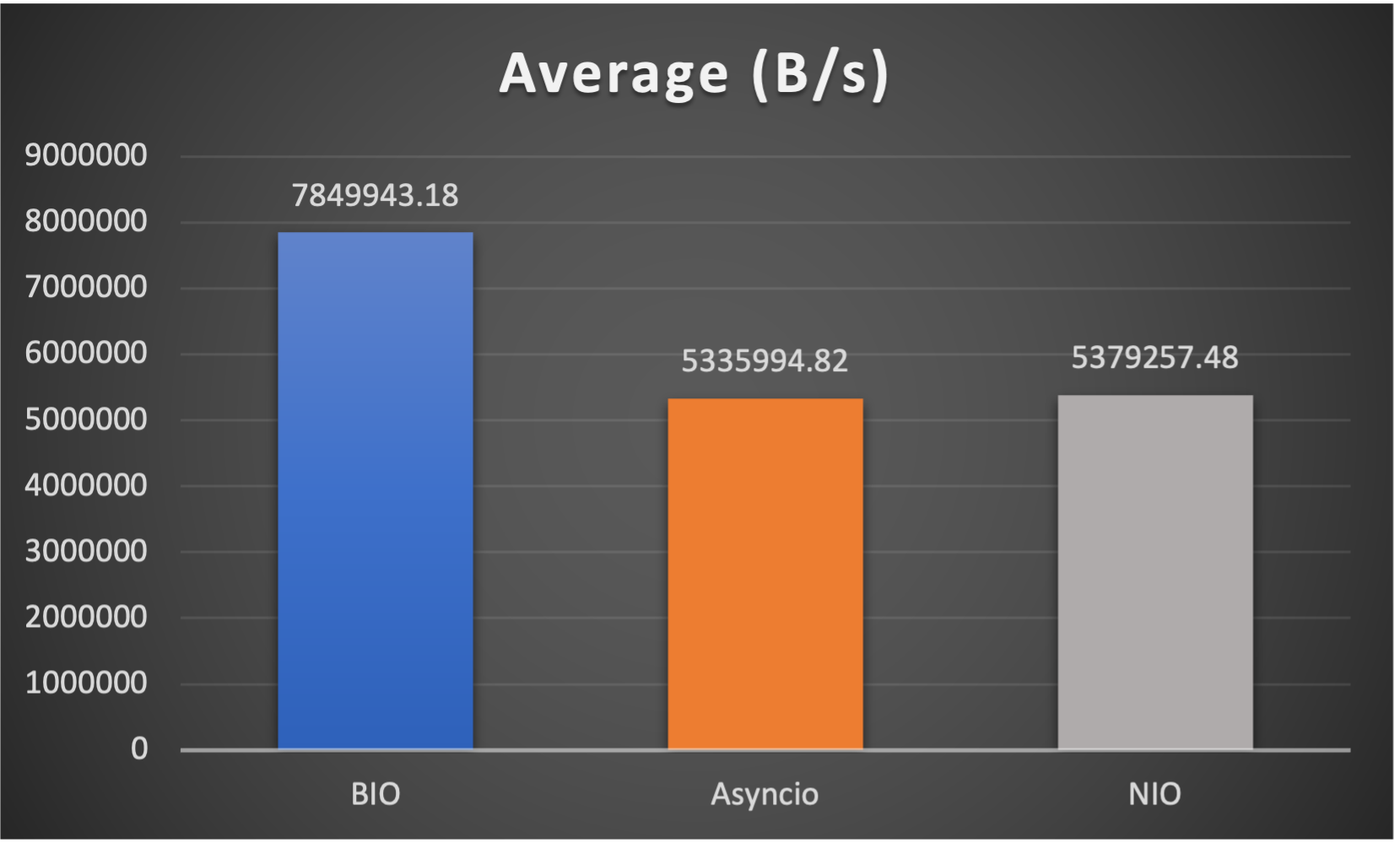
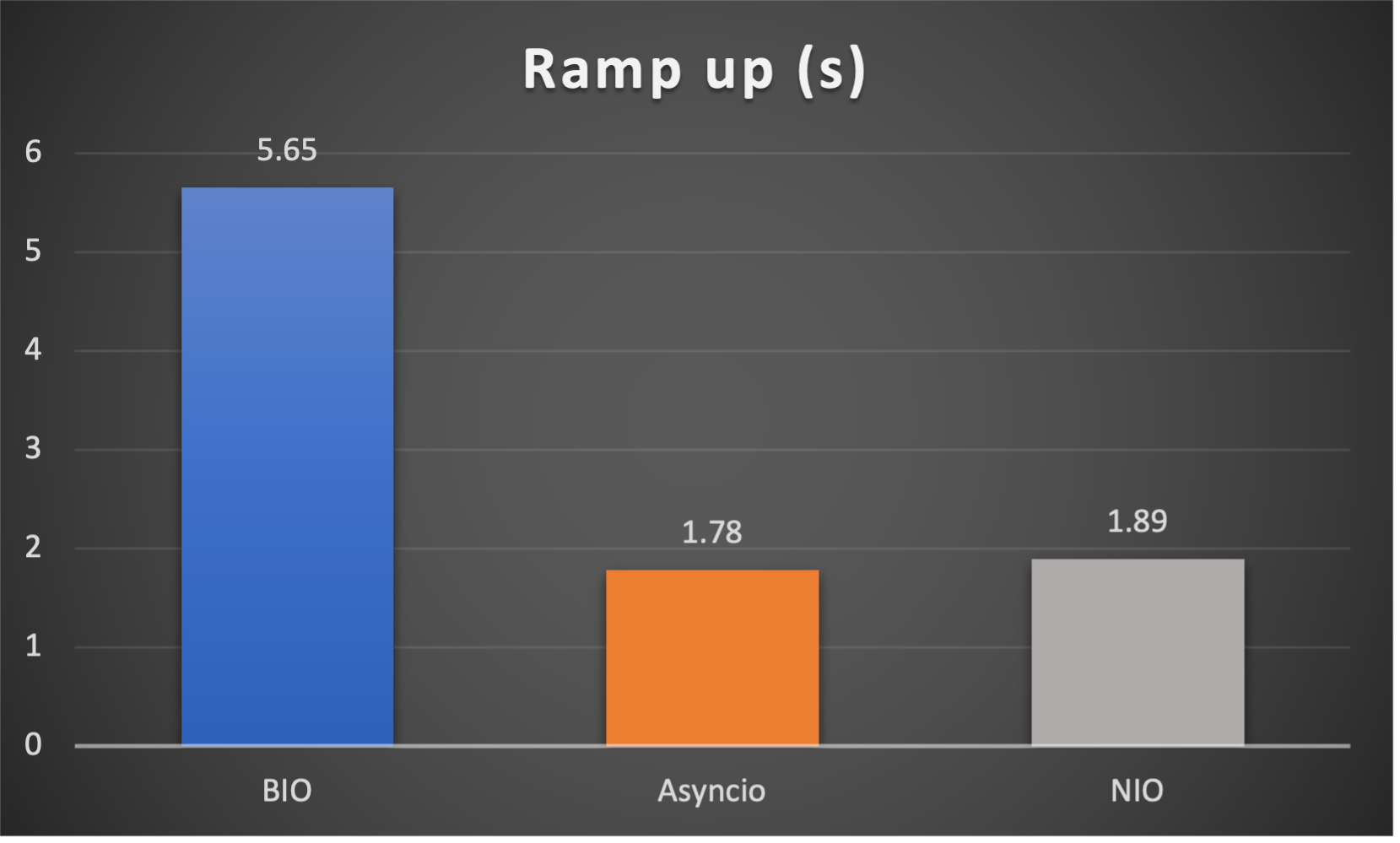
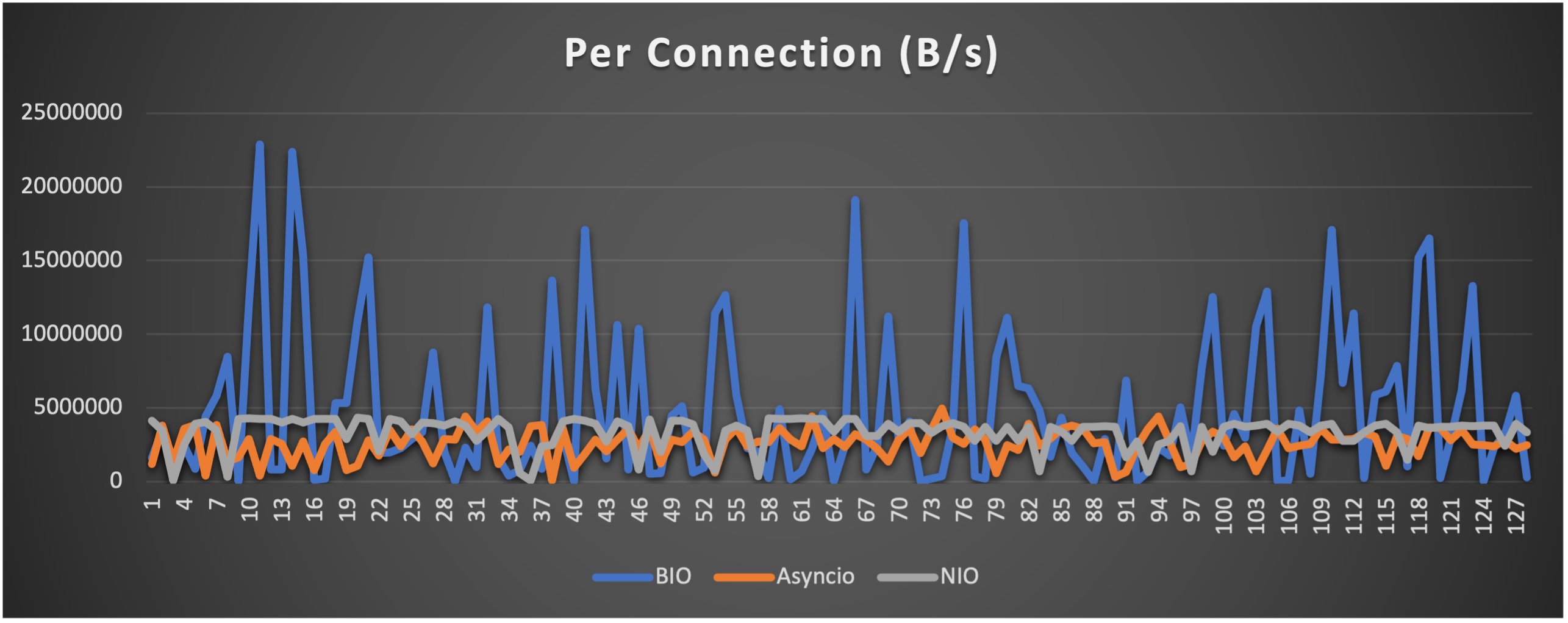
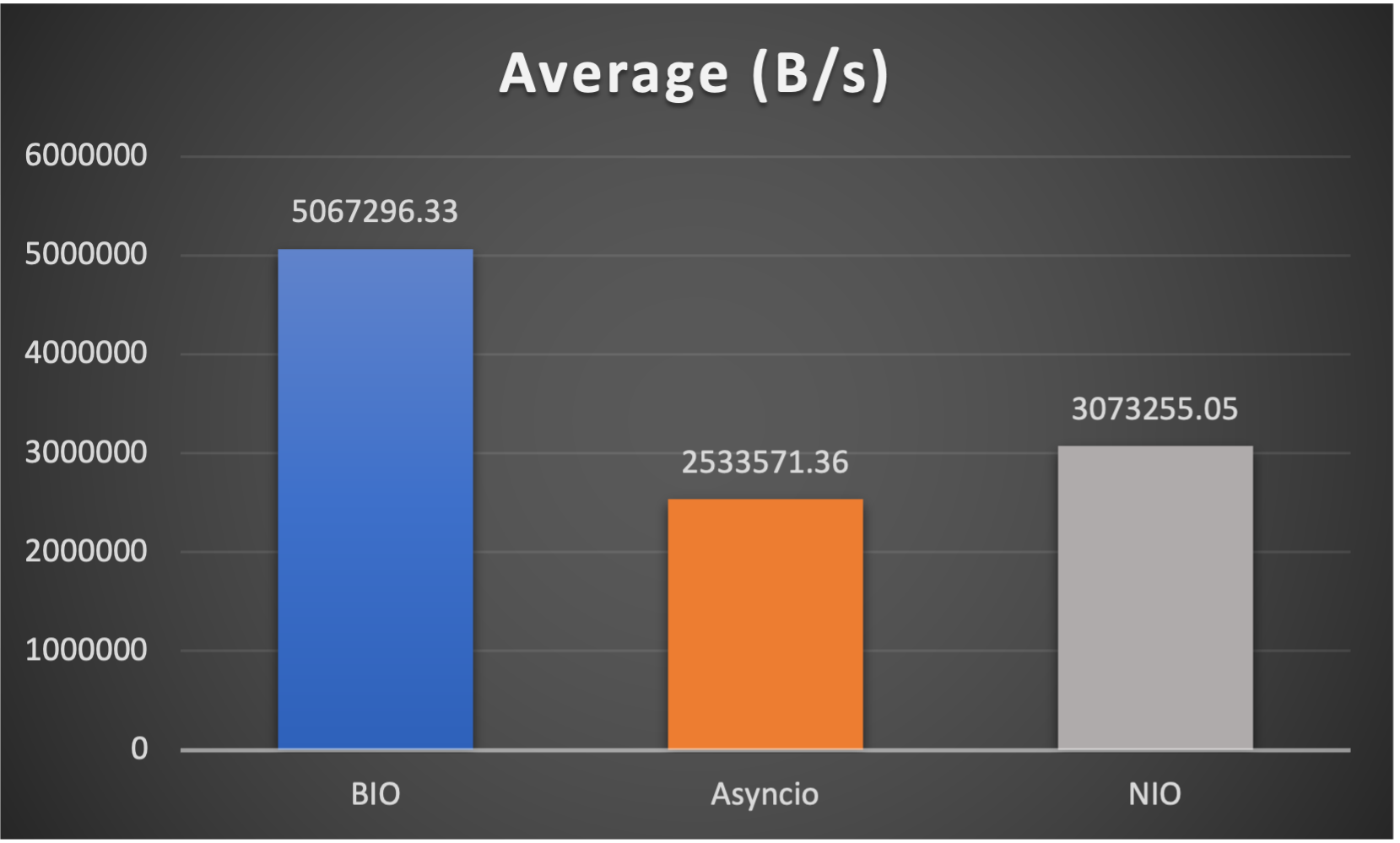
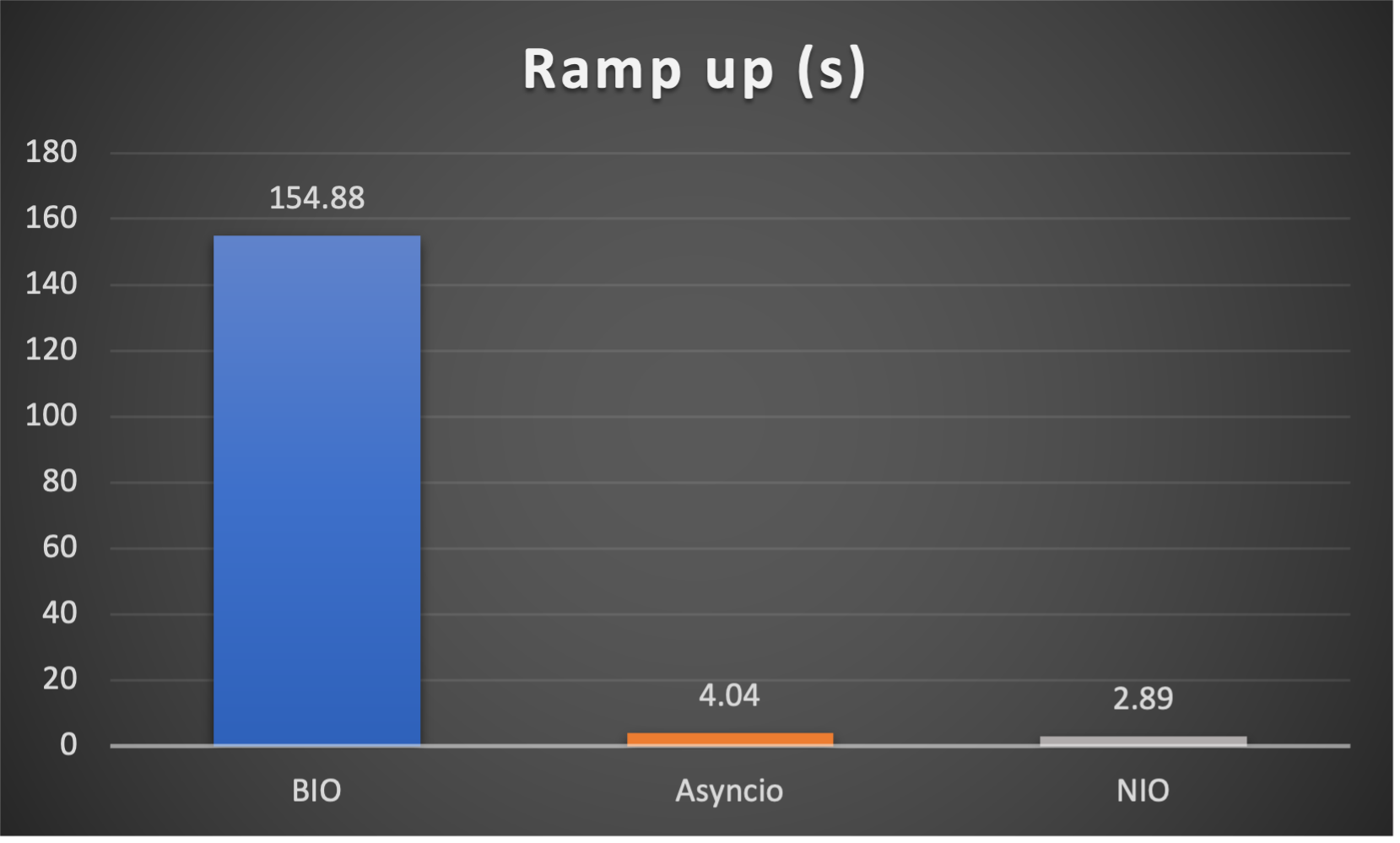
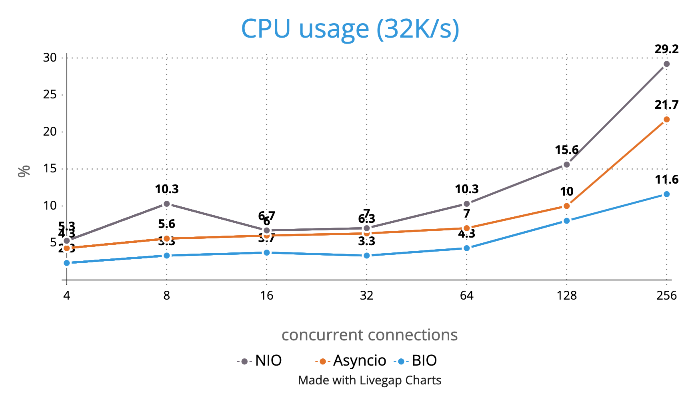
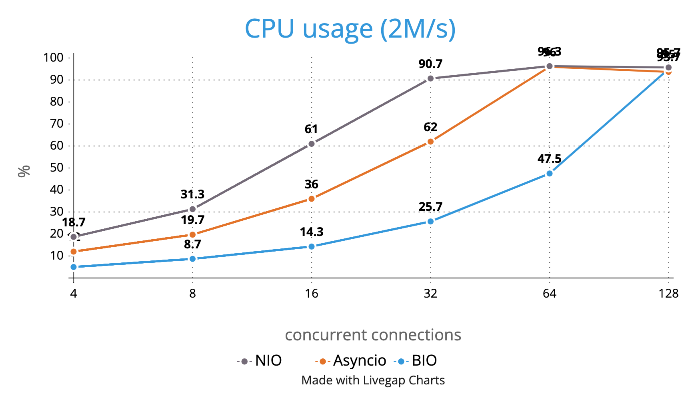
FAQs
TCP framework in flavor of Netty
We found that py-netty demonstrated a healthy version release cadence and project activity because the last version was released less than a year ago. It has 1 open source maintainer collaborating on the project.
Did you know?

Socket for GitHub automatically highlights issues in each pull request and monitors the health of all your open source dependencies. Discover the contents of your packages and block harmful activity before you install or update your dependencies.

Security News
Fluent Assertions is facing backlash after dropping the Apache license for a commercial model, leaving users blindsided and questioning contributor rights.

Research
Security News
Socket researchers uncover the risks of a malicious Python package targeting Discord developers.

Security News
The UK is proposing a bold ban on ransomware payments by public entities to disrupt cybercrime, protect critical services, and lead global cybersecurity efforts.